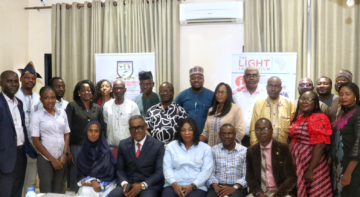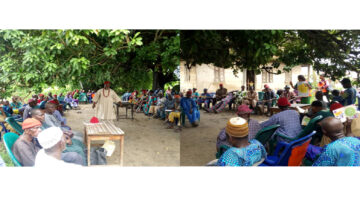Blogs

World Tuberculosis (TB) Day, first calls for a celebration on the progress made so far in controlling TB. In fact, the World Health Organisation (WHO) estimates that global efforts to address TB have saved 58 million lives in the last two decades. Moreover, Europe and seven high-burden TB African countries are on track to achieve 2020 milestones agreed at the United Nations (UN) 2018 Meeting to End TB, according to the WHO’s 2019 Global TB Report.
WHO estimates that global efforts to address TB have saved 58 million lives in the last two decades. Moreover, Europe and seven high-burden TB African countries are on track to achieve 2020 milestones agreed at the UN 2018 Meeting to End TB. Click To TweetThat said, there is still much work that needs to be done. Cumulatively, we are less than halfway in meeting our 2020 milestones to end TB. In 2018, 10 million people were diagnosed. In the same year, 1.5 million people died from TB—making TB the leading infectious killer around the world. Notably, sub-Saharan Africa (SSA) accounts for one quarter of all TB cases and deaths.
These statistics illustrate that it’s time to end TB.
To commemorate World TB Day this year, AFIDEP interviewed TB experts in Malawi at Facilitators of Community Transformation (FACT) and the Ministry of Health – National TB Control Programme Malawi. The interviews shed light on critical components of TB control in Malawi, including the need to focus on the most high-risk and vulnerable populations such as miners, prisoners, HIV positive individuals, and children. In addition, the interviews call for addressing key gaps in Malawi’s TB control including increased testing with improved diagnostic tools. Check out the video series below.
The State of TB in Malawi (prisoners and children)
In this video FACT Executive Director, Thokozile Phiri and FACT Health Policy and Advocacy Manager, Tromy Harawa discuss the gaps that exist in preventing and managing TB among the vulnerable population that are prisoners and children.
The State of TB in Malawi (miners, urban poor and HIV positive individuals)
In this video National TB Control Programme Malawi, Deputy Programme Manager, Isaias Dambe and National TB Control Programme Malawi, Chief Medical Officer, Care and Treatment Officer, Kuzani Mbendera discuss critical components of TB control in Malawi among the high-risk population that are miners, the urban poor and HIV positive individuals.
This work is part of the International Multidisciplinary Programme to Address Lung Health and TB in Africa (IMPALA), a four-year collaborative programme funded by the National Institute of Health Research (NIHR) (IMPALA, grant reference 16/136/35) using UK aid from the UK Government to support global health research. The views expressed in this publication are those of the author(s) and not necessarily those of the NIHR or the UK Department of Health and Social Care.”
Related Posts





